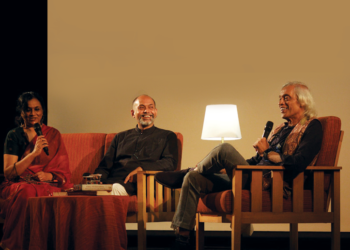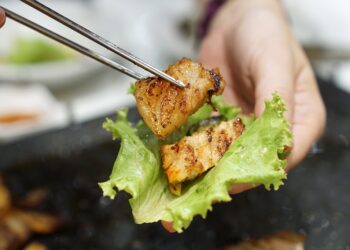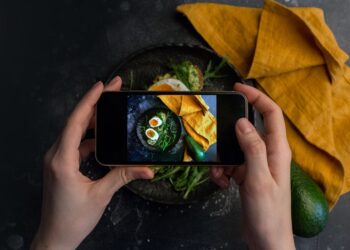Cakes were for birthdays, baked desserts for special occasions. Now, everyone is an expert
BY RUKMA SALUJA
Baking is perhaps the oldest form of cooking along with roasting, think campfires before an ocean of ingredients entered the repertoire of dishes and recipes. Baking is a close second—dry heat in closed environs. A pit dug in the ground layered with hot or burning coals and covered with another layer of hot coals. Today this has been honed to a fine art with advanced technology and precise quantities and heat control.
Baking the odd cake or dessert at home from dog-eared precious recipe books handed down from grandmas was what many of us did. Flury’s and Wenger’s were the go-to places. We even have a Ladurée now and you can learn all this at academies. The Lavonne Academy of Baking Science and Pastry Art in Bengaluru (among other similar institutes in the country) offers diplomas and certificates.

The Covid lockdown produced many a home baker. We all became ‘experts’ courtesy of YouTube. Instagram was flooded with the efforts and I’m sure many hoped this might become a career option. But Avin Thaliath, pastry chef, co-founder and director at Lavonne, said, “YouTube or the internet is a great source of research but can’t teach you to be hands-on, it cannot teach you the nuances. The difference is between a bad or great baker. When you come to an institute you get hands-on and technical training.”
This is a thought echoed by Chef Vanshika Bhatia who did a Cordon Bleu from London and has an impressive record in the industry (Noma, Copenhagen; Gaggan, Thailand; Junoon, Dubai; Olive Bar and Kitchen, Delhi; 12th, Le Meridien, Gurugram, and finally her own Petite Pie Shop, Gurugram). “Google institute can only teach you so much. It will never be able to teach what a career in the actual commercial kitchen can. The recipes online are not too reliable, they are good for getting ideas, though. The worst is when guests send screenshots from Google and ask for that particular look and product!” Chef Thaliath attributes the boom in baking to passion. “It has been a part and parcel of childhood Christmas, Easter or special occasions. It has picked up as a profession since roughly 2014, with the popularity of cookery shows like MasterChef.”

Chef Vanshika feels it was boredom and craving for a sugar fix. “Baking is a very meditative activity. During the Covid lockdown I think a lot of people turned to baking for calming down and also when the bakeries shut down people wanted to celebrate birthdays and satisfy the craving for baked cakes and cookies.” On a personal note, she shares that stress drove her to it. “Baking for me started when studies got hard in high school. I used to bake all night. My parents would wake up to freshly baked cookies or bread. It was a passion that just grew and grew and eventually turned into my profession.”
Also, people have become more aware of what goes into a recipe. With international ingredients and treats easily available in India (butter, cream, cheese, chocolate, strawberries, blueberries) baking has become easier for an average person. Confectioneries and patisseries have opened in most markets.
For Delhi-based home baker Sadhvi Kapur, it was a progression from what she’d seen her mother do. “As kids we never had cakes from the local bakeries, our mom always made our birthday cakes at home. As we grew older, we started to experiment and all our friends knew that if I attended a party, I would bring the cake.” As word spread, she began a little side business while still in school. In time, Sadhvi did a course in baking and ended up launching The Secret Ingredient along with her sister, Saumya.

Earlier there was no YouTube, no internet. But with the ease of travel and the marvel of high speed internet the world came to our doors. We were exposed to new things and new experiences. What was once special or considered a luxury became accessible. “Travelling, disposable income, eating out, all this helps baking and making it a career,” says Chef Avin Thaliath.
An exchange of Western sweets and desserts (that mostly come out of the oven) during festivals appears to be a definite trend in cities. “There has been no refinement in Indian sweets in the last few years,” says Chef Thaliath. “People have become more health conscious after Covid and think twice about sugar intake.”

Chef Vanshika disagrees emphatically. “Not at all! There are mithai businesses in every corner of the country. Indians are very loyal to their traditional sweets, especially during festivals and on auspicious days.” She also views this as a big city versus small town phenomenon. “In tier 2 and tier 3 cities there are still a lot of old-school sugary desserts.” In the metros people are more willing to experiment. “Like we have pies at Petite Pie Shop, we have guests who enjoy flavours like lavender, salted caramel, and so on.”
Sadhvi too feels that way. “Not at all,” she says. “And it never will. No cake will ever replace jalebi or ghevar. No matter how many ramalai cakes or gulab jamun cheesecakes you make, the original will always be the best.”

There is a rise in the consumption of convenience food, and confectionery is in that space. Chef Thaliath does, however, see a trend evident in the increased number of enrolments at the academy. Changes are afoot. “The world will see Indian sweets in a new light and (there will be) acceptance,” he promises. We are trying to make Indian sweets more holistic but in a different format.”
For Sadhvi, it is a matter of trust rather than a preference for one or the other. “Cakes and cookies definitely make great gifts, especially during festivals and for weddings,” she said. “We don’t really know what a local halwai puts into his mithai but we trust the home baker to use the best
ingredients.”
@chef_avin @chefvanshikabhatia @petitepieshop.in @sadhvikapur @saumyakapur @the_secret_ingredient @lavonneacademyindia @rukssaluja








